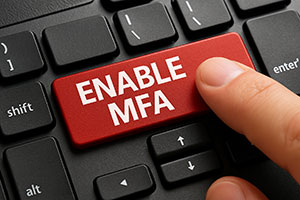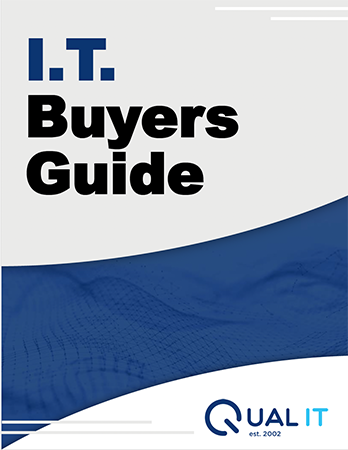 You wouldn't leave patient charts open in a waiting room. You wouldn’t skip locking up the clinic after hours. So why access your systems without multifactor authentication (MFA)?
You wouldn't leave patient charts open in a waiting room. You wouldn’t skip locking up the clinic after hours. So why access your systems without multifactor authentication (MFA)?
For Salt Lake City medical practices, MFA is more than a tech upgrade—it's a compliance tool, a security essential, and a critical piece of your HIPAA strategy.
MFA: The Second Lock That Stops a Breach
Multifactor authentication adds a second layer of protection when logging into EMRs, cloud backups, billing systems, or even email accounts. Instead of just using a password—which can be guessed, stolen, or phished—MFA requires a second verification, like a text message code, a push notification, or an app confirmation.
It’s the modern equivalent of turning on your building’s alarm after locking the door. If someone grabs your password, they still can’t walk in.
One Simple Step. Massive Impact.
Whether it's referred to as two-factor authentication (2FA), two-step verification, or one-time passcodes, the goal is the same: keep unauthorized users out.
For Salt Lake City healthcare providers, this can mean the difference between a routine Monday and a reportable HIPAA breach.
Types of MFA include:
- Text message codes
- Authentication apps like Duo or Microsoft Authenticator
- Push notifications
- Phone call confirmations
- Biometric logins (face or fingerprint recognition)
In most cases, it takes less than 5 seconds to complete.
Real-World Moments MFA Makes All the Difference
Imagine a front-desk coordinator accidentally clicks a phishing link disguised as a new patient referral. With MFA enabled, even if their password is compromised, the hacker hits a wall.
You get notified of the login attempt. You reset credentials. Crisis averted.
According to Microsoft, MFA blocks 99.2% of account compromise attempts. For medical practices, that kind of protection is priceless.
Where Your Salt Lake City Clinic Should Use MFA
You should enable MFA on any platform that stores or accesses sensitive information, including:
- EMR/EHR systems
- Cloud-based patient data or backups
- Practice management and billing software
- Email accounts used for scheduling, prescriptions, or patient communication
- Cloud file storage platforms (like OneDrive or Google Workspace)
Your IT provider should help you:
- Select the right MFA tools
- Configure them for minimal disruption to workflow
- Train your staff on how to use them effectively
Simple to Implement. Powerful in Protection.
MFA is one of the fastest, cheapest ways to dramatically increase your cybersecurity posture. And in healthcare, where one breach can lead to audits, fines, and lost trust, that matters.
At Qual IT, we specialize in helping Salt Lake City medical practices implement smart, compliant IT strategies—including MFA.
Click here to book your free network assessment.
Let’s add one small step that could save your practice from a very big problem.



